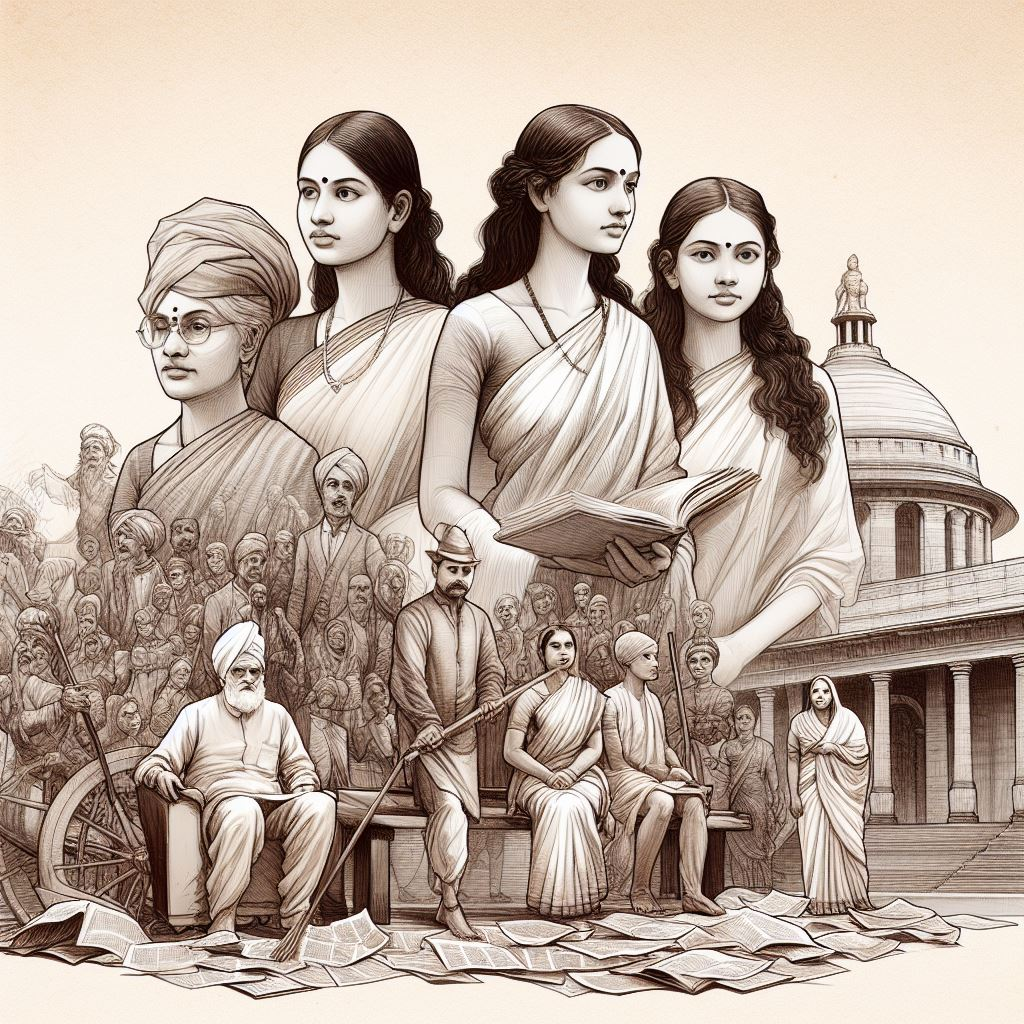Parth Raman & Diya Sehgal
Iran’s recent direct attack on Israel, termed “Bloody Borders”, marks a significant departure from past proxy conflicts, highlighting the escalating tensions in the Middle East. This bold move underscores Samuel P. Huntington’s theory of the Clash of Civilizations, wherein cultural differences supersede ideological or political divides in shaping global conflicts. The radical idea of conflict has also been established which highlighted that any state who is sharing a border with any radical state has never been in peace!

The attack, carried out under the banner of “True Promise” by the Islamic Revolutionary Guard Corps (IRGC), signals Iran’s readiness to confront Israel head-on. Motivated by what it perceives as retaliatory actions by Israel, Iran’s “Arc of Resistance” ideology positions itself against Western influence and Israeli dominance in the region.
The historical backdrop of Iran-Israel relations adds depth to the current escalation. Despite initial recognition of Israel in 1948, relations soured over time, particularly after the overthrow of Iran’s Mosaddegh government in 1953. The subsequent establishment of diplomatic ties between the two nations in the 1970s was overshadowed by shifting alliances and regional power struggles.
At the heart of Iran’s targeting of Israel lies the issue of Jerusalem, a city of immense cultural significance. Iran’s paramilitary group, the IRGC, views control over Jerusalem as pivotal to its vision of resistance against perceived Western and Arab hegemony. By challenging Israel’s authority, Iran seeks to assert its influence and reshape regional power dynamics.
Iran-Israel Relations and the Jerusalem Question
The historical backdrop of Iran-Israel relations adds depth to the current escalation. Despite initial recognition of Israel in 1948, relations soured over time, particularly after the overthrow of Iran’s Mosaddegh government in 1953. The subsequent establishment of diplomatic ties between the two nations in the 1970s was overshadowed by shifting alliances and regional power struggles.
During the Pahlavi dynasty (1925-1979), Iran maintained close ties with the United States, driven primarily by economic interests, especially Iran’s vast oil reserves. However, the relationship took a sharp turn following the overthrow of Prime Minister Mohammad Mossadegh in a coup orchestrated by the CIA and MI6 in 1953. The reinstatement of the Shah, who aligned closely with Western interests, strained Iran’s relations not only with the US but also with Israel.
Israel, for its part, established a de facto embassy in Tehran during the 1970s, and the two nations exchanged ambassadors, indicating a degree of diplomatic engagement. However, the Iranian Revolution of 1979, which brought Ayatollah Khomeini to power, drastically altered the region’s geopolitical landscape. Khomeini’s anti-Western rhetoric and staunch support for Palestinian liberation movements further strained Iran-Israel relations.
The Strategic Significance of Jerusalem and Iran’s Geostrategic Ambitions
At the heart of Iran’s targeting of Israel lies the issue of Jerusalem, a city of immense cultural and religious significance. Iran’s paramilitary group, the Islamic Revolutionary Guard Corps (IRGC), views control over Jerusalem as pivotal to its vision of resistance against perceived Western and Arab hegemony. By challenging Israel’s authority over the city, Iran seeks to assert its influence and reshape regional power dynamics.
The IRGC’s elite Quds Force, established with the specific mandate of advancing Iran’s interests in the region, plays a central role in Iran’s strategy towards Jerusalem. Through its network of proxies and alliances, Iran seeks to undermine Israel’s control over the city and support Palestinian resistance movements. This approach aligns with Iran’s broader geopolitical ambitions, which include countering Western influence and expanding its sphere of influence in the Middle East.
Moreover, Jerusalem’s status as the holy city for Judaism, Christianity, and Islam amplifies its strategic importance. Control over Jerusalem not only carries religious significance but also symbolises political and cultural dominance in the region. As such, Iran’s targeting of Jerusalem represents a calculated effort to challenge Israel’s regional hegemony and assert its position as a leading power in the Middle East.
In addition to its religious and cultural significance, Jerusalem also holds strategic value due to its location at the crossroads of Asia, Africa, and Europe. Control over Jerusalem would provide Iran with a strategic foothold in the heart of the Middle East, allowing it to project power and influence throughout the region. This geostrategic calculus further underscores the importance of Jerusalem in Iran’s broader geopolitical ambitions.
A Prelude to World War III?
The repercussions of Iran’s attack extend beyond the Middle East, sparking fears of a wider conflict. Leaders and experts worldwide have called for restraint, with some warning of the potential for a scenario akin to World War III. Colombian President Gustavo Petro has highlighted the urgency of peace efforts and UN intervention to prevent further escalation.
In this volatile landscape, India finds itself in a delicate position. While expressing concern over the escalating tensions, New Delhi [India] advocates for dialogue and diplomacy as the preferred means of resolution. Emphasizing the humanitarian toll of conflict, India underscores the importance of preserving peace and security in the region amidst mounting global apprehensions.
India’s stance reflects its commitment to multilateralism and the principles of non-alignment. As a key player in the region, India is interested in maintaining stability and preventing the escalation of conflicts that could destabilize the broader geopolitical landscape. By advocating for dialogue and diplomacy, India seeks to promote peaceful resolution and uphold the principles of international cooperation.
Navigating a Volatile Landscape
The escalation of tensions between Iran and Israel underscores the complex interplay of historical, cultural, and geopolitical factors shaping the Middle East. Iran’s confrontation with Israel, driven by its ambitions in Jerusalem and broader geopolitical interests, highlights the enduring significance of cultural and religious divides in shaping global conflicts.
As the international community grapples with the potential ramifications of the crisis, the imperative for dialogue, restraint, and multilateral engagement has never been more pronounced. In navigating this volatile landscape, India’s call for diplomacy and peace underscores the importance of collective action in preventing further escalation and preserving stability in the region. Only through concerted efforts and a commitment to dialogue can the spectre of conflict be averted, and the path towards peace and prosperity be forged.
The views and opinions expressed by the authors in this article are their personal opinions and do not represent the views of PureSociology. You can contact the author/s at [email protected] and [email protected]. The details of the authors are:
Parth Raman is a Legal Scholar and Director of the Council for Policy Research and Analysis, New Delhi.
Diya Sehgal is a First-Year Law Student at the University Institute of Legal Studies, Chandigarh University. Along with that, she is an active Member of NITI, UILS, Chandigarh University.


